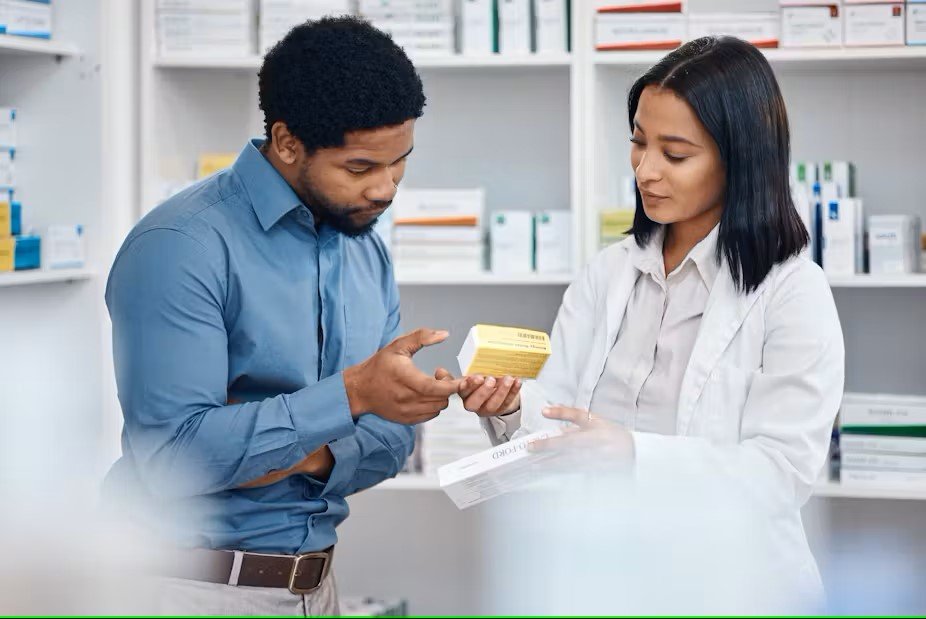A recent study shows that pharmacies can help reduce pressure on health centers in Portugal. The study is titled “The Role of Community Pharmacy in the Patients Journey.” It highlights how pharmacies can support the healthcare system. It was conducted by IQVIA and supported by the Portuguese generics company Tecnigen. The findings shed light on how pharmacies can bridge gaps in primary healthcare and offer quicker and more accessible solutions for patients.
Read More About: Prison Service Technicians In Portugal On Strike From Today To Work Overtime
How Pharmacies Can Help Health Centers In Portugal

Nearly three out of four general practitioners (GPs) believe pharmacies can reduce the strain on health centers. Many doctors (64%) think pharmacies improve how patients stick to their treatments.
Better adherence means fewer hospital visits and improved patient outcomes over time. Most pharmacists (82%) also see therapy monitoring as their main benefit and help patients stay on track with medications.
Doctors and pharmacists agree that working together adds value. They believe that better collaboration improves patient care and management. This partnership could streamline healthcare services and ensure that patients receive timely assistance for their needs.
What Patients Think
The study also surveyed 250 patients. Most (81%) said the healthcare system would work better if pharmacies played a bigger role. They see pharmacies as convenient and accessible. They are also capable of handling minor health concerns efficiently.
Nearly all (99%) believed pharmacies could help ease the load on the National Health Service (SNS). This would save money and allow the SNS to fund more pharmacy services and ensure sustainability.
However, fewer patients (59%) agreed that some pharmacy services should have fees. Many prefer these services to remain free or included in healthcare costs. This reflects the need to balance affordability with expanding pharmacy roles in the health system.
Key Areas For Pharmacies In Portugal
Doctors and pharmacists highlighted important ways pharmacies can help:
- Prevention and Education: Over half of the doctors (56%) believe pharmacies should focus on prevention. This includes giving vaccines and helping with early diagnosis of diseases like hepatitis and HIV. Prevention programs can reduce long term healthcare costs and improve community health.
- Managing Mild Conditions: Pharmacists (24%) see treating mild conditions as a key role. These include minor illnesses like migraines or urinary infections. Quick interventions at pharmacies could prevent these issues from escalating. Patients also support this idea with 71% saying pharmacies should treat mild issues. Another 74% want pharmacies to offer quick tests and advice on self-care, ensuring faster resolutions for everyday health concerns.
- Improving Health Outcomes: Pharmacies can help patients follow their treatments and monitor their health. This would give patients better outcomes and reduce the strain on doctors. Regular follow ups at pharmacies could also detect potential health risks early which leads to timely medical interventions.
Investment In Pharmacies
The study also looked at how pharmacies could improve in the future. Doctors and pharmacists have different views on what should be prioritized.
Most doctors (56%) want pharmacies to focus on prevention and education. They believe pharmacies should help with national health strategies. These include early screenings and giving vaccines. Doctors see pharmacies as key partners in reaching underserved communities for preventative care.
Pharmacists think treating mild conditions should be the priority. They want pharmacies to act as the first point of contact for patients. Pharmacists can use special protocols to treat patients and refer them to doctors when needed. This will not only speed up care but also allow doctors to focus on more complex cases.
Another area is personalized medicine. More than half of the doctors (56%) support pharmacies preparing medicines for individual patients. Around 44% of doctors want pharmacies to have better tools and training for non-prescription medicines. Enhanced tools could ensure accurate advice, boosting patient trust.
Patients and pharmacists shared new ideas for pharmacy services. One suggestion is creating green routes for referrals. This would let pharmacists book priority doctor appointments for patients. Such systems could significantly reduce wait times and improve patient satisfaction.
Pharmacies could also focus more on health education. Programs aim at managing chronic conditions like diabetes or hypertension can help patient better control their conditions. They could offer workshops and teach patients how to stay healthy. This will help reduce demand on healthcare system.
Challenges And Opportunities
There are some challenges to expand pharmacy services. Funding is a big concern. Patients want services to stay affordable but pharmacies also need resources to provide high-quality care. Governments and stakeholders must find a balance between cost and accessibility.
Another challenge is ensuring safety. Pharmacies will need clear guidelines and training to manage mild conditions. This will help them provide safe and effective care. Ensuring standardized protocols across pharmacies will be essential for maintaining trust and consistency.
There are many opportunities. Pharmacies can play a bigger role in healthcare with better collaboration and support. Their accessibility and widespread presence make them ideal for offering preventive care and managing minor conditions. This will improve care for patients and reduce the workload for doctors.
The study shows that pharmacies have the potential to improve healthcare. They can help patients follow treatments and provide preventive care. This would reduce pressure on health centers and improve the National Health Service (SNS).
Better collaboration between doctors and pharmacists is key. New ideas like green routes and personalized medicine can make healthcare more efficient.






